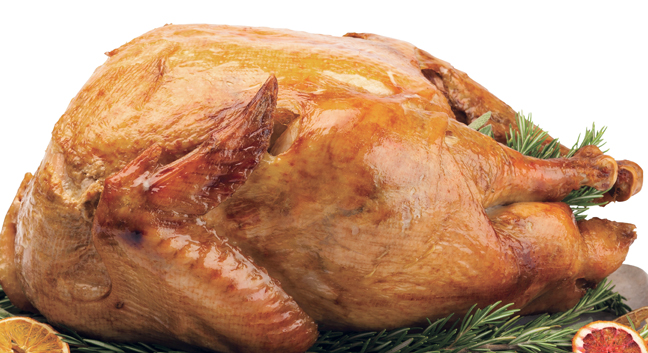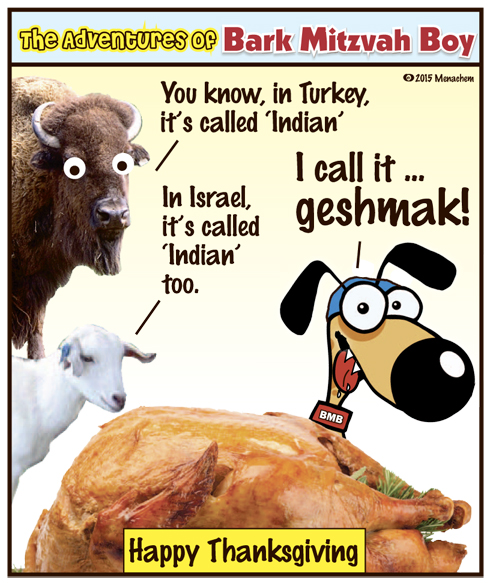Tarnegol hodu, a bird called turkey

Leshon Ima – Mother Tongue, with Dr. Rachel Zohar Dulin, Special To The Observer
Thanksgiving is on the way, so let’s talk turkey, but in Hebrew. The Hebrew name for the American turkey is tarnegol hodu, literally rooster of India.
Why, in Hebrew, is an indigenous American bird connected with India?
Some theorize the name was originally given to a fowl imported to European markets from Madagascar by Turkish merchants.
The bird, which was large and tasty, received the name turkey after the country of origin of its importers.

The Pilgrims, who came to Plymouth, saw the American bird, which to them resembled the familiar bird of the old country and they called it by the same name.
Others claim an Hebraic origin for the name of the American bird. Accordingly, Columbus, whose roots may have been Jewish, knew some Hebrew and upon seeing the colorful bird called it tuki, Hebrew for parrot. With the years, it was altered to the familiar name turkey, Europe’s favorite fowl.
In Hebrew, unlike English, the bird is identified with India rather than Turkey, echoing the early explorers’ misidentification of the Western Hemisphere with India.
In English, the indigenous population was misnamed; in Hebrew, the indigenous bird was misnamed.
 Tarnegol hodu, the Hebrew name for turkey, is based on two unrelated languages. First, tarnegol, which means rooster, is derived from the ancient Sumerian word tarlugal meaning the king’s bird, and mentioned often in the Talmud but not in the Bible.
Tarnegol hodu, the Hebrew name for turkey, is based on two unrelated languages. First, tarnegol, which means rooster, is derived from the ancient Sumerian word tarlugal meaning the king’s bird, and mentioned often in the Talmud but not in the Bible.
Hodu is the biblical name for India (Esther 1:1), which is derived from the Persian word Hindu, a name for the region around the Indus River.
By the way, Russian, Polish, and Yiddish also call turkey an Indian bird. And even in Turkish it is called Hindi, namely India.
It is amusing to note that in Hebrew the term tarnegol hodu is used to describe a person who angers easily or is conceited because, like a turkey, the person’s feathers are easily ruffled.
The word hodu is not only a name of a country, but also the plural imperative of the Hebrew verb yadah, meaning confess, thank, praise and agree, which appears in the Bible more than a hundred times. The word todah, thanks, is derived from the same root.
So, as we celebrate Thanksgiving, enjoying the family gathering around the table with tarnegol hodu at the center of the meal, let the words of the biblical poet — “Hodu lAdoshem ki tov, Praise the Lord, for He is good (Psalms 107:1)” — resonate with joy.
Dr. Rachel Zohar Dulin is a professor of biblical literature at Spertus College in Chicago and an adjunct professor of Bible and Hebrew at New College of Florida.
To read the complete November 2015 Dayton Jewish Observer, click here.





